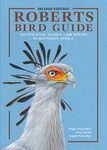![African Wild Dogs African Wild Dogs]()
Click to have a closer look
About this book
Customer reviews
Biography
Related titles
About this book
About 450 is optimistically the number of free-ranging African wild dogs left in South Africa. If ever a charismatic, African species could be considered an underdog in the face of human development, the wild dog, Lycaon pictus is it. Available habitat is in short supply. An abundance of fences and roads cut the landscape. They are loved. They are despised.
The immediate future of this dynamic, endangered, large carnivore is in the hands of a thinly spread, intensely committed network of conservationists, donors, state reserves and progressive landowners.
When an opportunity to study wild dogs through the Endangered Wildlife Trust presented itself to Brendan Whittington-Jones in 2007, he arrived in Hluhluwe-iMfolozi Park naive to the challenges of real wildlife conservation. The next seven years were a flood of lessons in the complexity and fascination of wild dog management, anger management, Microsoft Office, diplomacy, optimism and how to play wild dog travel agent. The camaraderie of the unconventional crew of devoted field staff and researchers who dedicate so much to keep the species running was a revelation.
African Wild Dogs lifts the gloss and illusion off a wedge of carnivore conservation, and reveals a snapshot of characters (human and canid) and organisations which tread the murky waters of trying to ensure the species' persistence in South Africa. There is only hope through action; and remembering a cold beer at sunset and good bloody laugh can restore a little sanity.
Customer Reviews
Biography
Brendan Whittington-Jones cut his conservation teeth in the complex habitat of suburban Cape Town. Ignoring the lure of European starlings, pine trees, frigid rocky shores, Fynbos, dogs, cats and home, he chose to follow his older brothers to Rhodes University. In the valley bushveld of the Eastern Cape he studied Zoology and Entomology with the aim of doing something vaguely similar to David Attenborough or the men who led him and fellow school pupils on an iMfolozi wilderness trail in 1993. Following a brief study stop in Pretoria, and a period living the South African-graduate-in-Britain dream of minimum wage labour and travel, he settled into a manic and life-altering three years at a private game reserve in Zululand with iMfolozi Game Reserve just 20 kilometres away. Curiously this Zululand chapter led to a swirl of years cleaning up after zoo animals in Iraq, the USA and Afghanistan before temporarily resettling in Cape Town. When the iMfolozi temptation resurfaced in the form of a wild dog research post, he grabbed it. Seven years of indulging in game reserve life assaulted his perceptions of conservation space and success, taught him to judge people based on whether they liked wild dogs or not, and allowed him privileged access into the ecological utopia of northern KwaZulu-Natal province. He developed an addiction to pies and midday braais. He currently lives in Oman.






































